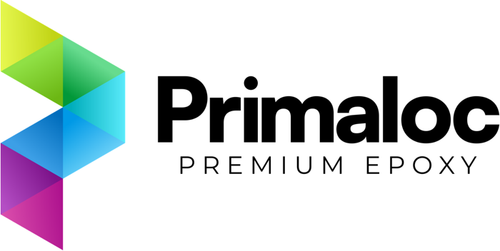Renovating or installing new countertops can be quite an undertaking. With all the options available these days, it can be tempting to settle for something conventional like granite, marble, or quartz, along with a soft sealer such as a lacquer.
Yet conventional choices like granite, marble, and quartz and their corresponding go-to sealants have their own share of problems—which can be solved or avoided entirely through something less conventional: an epoxy countertop.
In this guide, we'll explain what epoxy is, the value of epoxy countertops, what to think about when considering one, and what supplies you might need to complete your epoxy project.
What Is Epoxy?
Generally, epoxy is the cured form of a transparent plastic material with high strength and durability. The most common epoxies are two-part epoxies, i.e., epoxy resins stored as two separate liquid components. Once these components are mixed together, they begin to cure, gradually hardening into a rock-solid material with a clear finish, while also bonding with any surface they're poured onto.
For decor purposes, it is frequently used to protect materials such as wood, granite, and marble. These materials are susceptible to certain types of damage, but with a coating of epoxy, these weaknesses fade away. Additionally, epoxy enhances the color depth of coated surfaces and gives them an attractive glossy finish.
Cured epoxy is a food-safe surface, classified as a non-hazardous material. While you shouldn't use it directly for food prep (because it's not impervious to knife cuts, for instance), its non-toxic nature means that resting something like an apple on a clean epoxy surface will not cause any harm. This is why you can find many examples of epoxy kitchen countertops.
During the mixing phase, epoxy is also quite receptive to suitable colorants such as powder pigments and liquid pigments, enabling you to personalize the appearance of your finish with ease.
What Are Epoxy Countertops?
In the simplest terms, epoxy countertops are just countertops that have been sealed with a coat of epoxy resin. The coating is typically there to protect the original material of the countertop surface, such as granite or wood, from various types of damage that they're otherwise vulnerable to, such as staining and moisture damage.
A coating of epoxy provides a variety of benefits, including:
-
Rock-Solid Durability: It's extremely resistant to scratching and denting—as well as staining, due to its waterproof nature.
-
Crystal-Clear Appearance: It has a glasslike appearance that enhances the color of any material it bonds to.
-
Inexpensive: It doesn't cost a lot to do a full coating.
-
Low Maintenance: Epoxy doesn't require much upkeep. It's easy to clean and will last for many years.
-
Highly Customizable: Epoxy can be customized in different ways to achieve a desired aesthetic. E.g., you can color your epoxy with pigments.
Things to Consider in Planning Your Epoxy Countertop Project
There are several things you should consider upfront when planning an epoxy countertop project.
First, think about whether you want to make this a DIY project or if you'd rather consult a contractor. While a contractor will add to the cost, it can be a relief to allow a professional to handle the process if you feel unqualified. That said, our Primaloc Epoxy is designed to be easy to handle even for beginners. We've had many first-time users of epoxy who were able to achieve success just by closely following the included epoxy instructions.
Second, choose your epoxy brand carefully. There are many brands these days that seem great on the surface but offer a substandard resin product that won't hold up in the long term. It's best to choose something reliable, even if it costs a little more. At Primaloc, we pride ourselves on delivering high-quality premium epoxy resin.
Finally, think about what tools and supplies you need for your project. In most cases, you'll definitely need mixing containers, gloves, a heat gun, and a mixing drill bit. You can get all of these as a discounted Tool Kit bundle in our store. Other supplies you might need include stir sticks, edge tape, and a brush to apply a proper epoxy seal coat. You'll find each of these items in the Tools & Supplies section of our store.
Epoxy Countertops: Easier Than They Seem
Although the idea of starting a significant renovation project can be intimidating, epoxy countertops aren't as challenging as they may seem. For the most part, the process is simple:
- Measure the surface area of your countertops.
- Order a suitable amount of epoxy, based on its coverage ratio.
- Gather up any other supplies you need.
- Protect any surfaces you're not coating with plastic sheeting.
- Mix up and apply a seal coat batch.
- Then do your flood coat, remove any air bubbles, and allow it to cure.
Primaloc has an in-depth set of instructions designed to help you plan your project and complete it without issue. You can read a digital version of them on our support site here.
Primaloc Epoxy: Premium Epoxy for Premium Results
When it comes to epoxy resin, Primaloc Epoxy gets the job done. Our epoxy resin is premium-grade, with high performance in every category. That's why so many people choose us for their epoxy countertop and bar top projects.
Epoxy resin can be beautiful, strong, and long-lasting—which is why you shouldn't compromise on quality. With Primaloc Epoxy Resin, you get the ultimate finish in durability and visual appeal.
Protect your surfaces by giving them a rock-solid epoxy finish. Choose strong. Choose reliable. Choose Primaloc.



